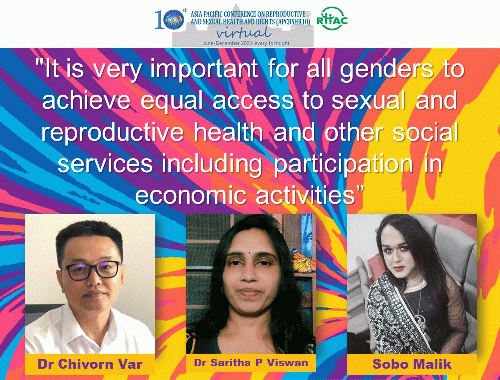Shobha Shukla - CNS

People of ALL gender identities and expressions and sexual orientations must enjoy full human rights with equality and dignity
(Image by CNS) Details DMCA
"...All must be encouraged in an understanding of the fact that all human beings are born good, but they may be endowed with different gifts. Deviations from preset norms should not form the basis of ostracism. There should be no discrimination on the basis of one's gender identity. We need to try to see it as a gift and not as a threat...". So had said late Sister Marian Moriarty IBVM, a former Superior General of the Loreto Sisters, when I had met her about a decade ago. These words, coming from a devout Catholic, are indeed encouraging and would help in removing the misconception that religion goes against the so called 'out of line behaviour'.
Yet
discrimination and stigma in the name of tradition, religion or culture
continues to plague the lives of LGBTIQ+ (lesbians, gays, bisexuals,
transgender, intersex, queer and other sexual orientations, gender identities
and gender expressions), denying them the basic human rights to live with dignity
and equality.
Ensuring respect and equal rights among all individuals, regardless of their
gender identities, gender expressions, and sexual orientations, is a crucial
issue confronting all countries, including those in the Asia Pacific region.
"It is very important for all genders to achieve equal access to sexual and reproductive health and other social services including participation in economic activities. It is also an important element to achieve universal health coverage that promises to leave no one behind", said Dr Chivorn Var, founder Executive Director of Reproductive Health Association of Cambodia (RHAC), and convener of the 10th Asia Pacific Conference on Reproductive and Sexual Health and Rights (APCRSHR10).
transgender rights in India
The first ever
official count of transgenders in India, as per the 2011 census, puts their
number as 4.9 lakhs, out of which only 30,000 are registered with the Election
Commission. But activists estimate the actual number of transgenders to be
several times higher than this. The landmark judgement by India's Supreme Court
in 2014 in National
Legal Services Authority v. Union of India granted legal recognition of the
third gender, exempted biological evaluation of gender for the purpose of law,
and upheld transgenders' right to decide their self-identified gender as male,
female or as third gender. It also affirmed that all the fundamental rights
granted under the Constitution
of India will be equally applicable to them.
Then again, the Transgender
Persons (Protection of Rights) Bill, passed by the Parliament in 2019
prohibits discrimination against transpersons (those whose gender does not match
the one assigned at birth) in employment, education, housing, healthcare and
other services. However, while allowing self perception of gender identity, it
mandates that each person would have to be recognised as 'transgender' on the
basis of a certificate of identity issued by a district magistrate after proof
of a sex reassignment surgery is provided. Transgender people believe this is
coercing them into surgery whereas the demand for free or low-cost sex reassignment
surgery has not been met. Also, the Bill strongly focuses on trans women (or
hijras as they are called) and there is little emphasis on the intersex, queer,
gender non-conforming people, and even trans men in the Bill.
ground reality
(Note: You can view every article as one long page if you sign up as an Advocate Member, or higher).





